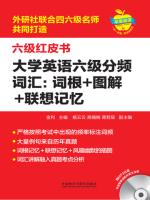笔记(共100篇)
-
wh64225
A Bridge to the Soul of China: A Review of "A Reader of Chinese Culture" (English Edition) For readers eager to unlock the mysteries of Chinese culture beyond surface-level stereotypes, "A Reader of Chinese Culture" (English Edition) stands as an accessible and insightful gateway. This carefully curated collection avoids the common pitfalls of overly academic jargon or superficial glossing, striking a balance that appeals to both casual readers and those with a deeper interest in cross-cultural understanding. One of the book’s greatest strengths lies in its thematic structure. Rather than presenting a chronological recount of historical events, it organizes content around core cultural pillars—such as Confucian ethics, Taoist harmony, traditional arts (calligraphy, painting, opera), festival customs, and culinary heritage. Each section is supplemented with concise historical context and vivid real-life examples, making abstract concepts tangible. For instance, the chapter on Lunar New Year not only explains the origin of customs like red envelopes and dumplings but also connects them to the Chinese values of family reunion and new beginnings, allowing Western readers to grasp the emotional and cultural significance behind the rituals. The translation quality deserves special praise. Translating nuanced Chinese cultural terms is a formidable task, yet the translators have managed to preserve both accuracy and readability. Terms like "ren" (benevolence) and "yin-yang" are accompanied by subtle explanations that avoid oversimplification, helping readers appreciate the depth of these concepts without feeling overwhelmed. Additionally, the inclusion of selected literary excerpts—from ancient poems to modern short stories—adds a literary dimension, letting readers experience the beauty of Chinese language and thought directly. What sets this reader apart is its focus on cultural dialogue rather than one-way introduction. It frequently draws comparisons between Chinese and Western cultural concepts, such as the similarities between Confucian "filial piety" and Western ideas of family respect, or the differences between Chinese collective harmony and Western individualism. These comparisons foster critical thinking and encourage readers to reflect on their own cultural frameworks, transforming the book from a mere "guide" into a catalyst for cross-cultural exchange. Admittedly, as a general reader, it cannot cover every aspect of China’s vast and diverse culture in exhaustive detail. Some regional customs or niche art forms receive only brief mentions. However, this brevity is also a virtue, as it allows the book to maintain a clear focus and avoid becoming unwieldy. For readers seeking deeper exploration, the extensive bibliography at the end provides valuable pointers for further reading. In conclusion, "A Reader of Chinese Culture" (English Edition) is a commendable achievement. It succeeds in demystifying Chinese culture with clarity, warmth, and depth, serving as an essential bridge for anyone who wishes to understand the rich tapestry of traditions, values, and beliefs that shape Chinese society. Whether used as a personal reading companion or a supplementary text for cross-cultural studies, this book is sure to leave readers with a more nuanced and respectful appreciation of China—one that goes far beyond the headlines and stereotypes.
-
香香鱼
-
香香鱼
-
洪子霓
“constrain sb from doing sth 限制某人做某事” 全部笔记(1) 去书内
Sometimes environments constrain those people and sometimes environments give those people opportunity. 有时候环境束缚那些人,而有时候环境又给他们机遇。 [考解]constrain指“把…限制在窄小的范围内;强迫;约束”;restrain指情感“抑制”,如抑制愤怒、笑声、眼泪等 Wordlist 06 block8 /blɒk/ n. ①大楼②街区③大块(木料、冰等)④阻碍(物)vt. ①堵塞②拦阻,妨碍 [模拟]They're going to build a big office block on that vacant piece of land. 他们准备在那片空地上建造一栋办公大楼。
-
洪子霓
“trans(穿过)+port(搬运)→穿过不同地域搬运→运输” 全部笔记(1) 去书内
It is one thing to locate oil, but it is quite another to extract and transport it to the industrial centers. 寻找石油跟提炼并运送石油到工业中心是截然不同的两件事情。 [考解]transport强调用车辆或机械把人或物从一处运到另一处。另外,平常所说的公共交通是public transport。 admit9 /ədˈmɪt/ vt. ①承认②准许…进入③接纳,允许…加入④收治,接受…入院 vi. 承认 [助记]ad(加强)+mit(送)→一定能送进去→准许…进入
-
洪子霓
-
洪子霓
-
洪子霓
-
洪子霓
-
洪子霓



 京公网安备 11010802032529号
京公网安备 11010802032529号